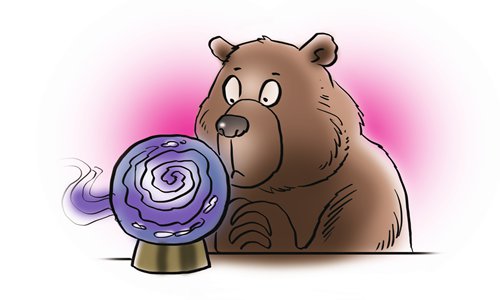
Illustration: Liu Rui/GT
Russia is set to hold its presidential elections in March with incumbent President Vladimir Putin widely expected to be re-elected and so become the country's longest-ruling leader since Joseph Stalin. Many other candidates are also participating in the election.
Russia's Central Election Commission has so far received 64 applications, a new high for the Putin era compared with 14 in 2012 and 15 in 2008. The applications by 21 representatives of political parties and 43 individuals are good news for the Kremlin and can be used as evidence to strike back at Western criticism of Russia's democracy.
Four people eventually took part in the 2008 election and five in the 2012. This year that number will definitely increase. This is because Russia has considerably reduced the required number of voter signatures required for candidates and the Kremlin also wants to make Putin's fifth tenure more legitimate and justified.
But this has been disrupted by opposition leader Alexei Navalny, known for his anti-Putin stance. After being barred from challenging Putin in the presidential elections, he urged his supporters to protest nationwide on January 28 against his ban. Having organized mass demonstrations in 2011 and 2012 against the State Duma and presidential election results, Navalny has unusual organizing ability. He posed a serious challenge to Sergey Sobyanin, a Putin ally, in the Moscow mayoral election of 2013, and organized protests last year that were the largest in five years.
To run in the 2018 presidential elections, Navalny has set up campaign offices in 84 cities and claims to have up to 200,000 volunteers. On December 24, one day before the Central Election Commission banned Navalny, his 16,000 firm supporters rallied in 20 cities. Thus Navalny's calls for new protests will probably have political implications.
The Kremlin must have made a full assessment of Navalny's possible reactions. The ban on his participation in elections is not a perfect measure, but can minimize repercussions triggered by him. After all, his fraud conviction justifies the ban and the move is legally reasonable.
Meanwhile Navalny's supporters are mainly internet users. Once approved for the election, he would gain more access to media, including traditional media.
His views would gain more support and challenge Putin even more.
In light of the protests organized by Navalny in recent years, Navalny's charisma as an anti-Putin and anti-corruption figure shows less influence. The decrease in participants shows that more Russian people chose to accept Putin's long-term presidency and wait to see what will happen in 2024. Last year Russia had the best economic performance since the Ukraine crisis and boosted people's expectations and confidence in the country's future. This to some extent squeezed Navalny's voter base.
The latest polls by the independent Levada Center last month showed that public support for the leaders of the Liberal Democratic Party and the Communist Party both stood at about 4 percent, compared with Navalny's 2 percent. This suggests that Navalny is not the biggest challenger to Putin. For this reason, a ban on Navalny will not cause huge political results.
According to the decision of the Central Election Commission, Navalny may be barred from presidential elections for the same reason in six years, which means the 41-year-old might not be allowed to run for president until 2030. This has somewhat put an end to his political life, at a relatively low cost. The uproar in Western political and media circles are not so much sympathetic in their support for Navalny as discontented with Putin's longevity of office.
However, the high tone of the West is often used by Putin as a tool to boost managed populism among Russians. At his annual news conference on December 14, Putin implicitly likened Navalny to former Georgian president Mikheil Saakashvili and said such people would destabilize Russia.
The question is whether it's a reasonable political norm that Russia should only be ruled by Putin.
It remains uncertain whether stability in Russia will bring the long-expected development after Putin's inevitable election victory in March. Banning Navalny from upcoming elections may have significant influence in the long term for post-Soviet Russian politics.


